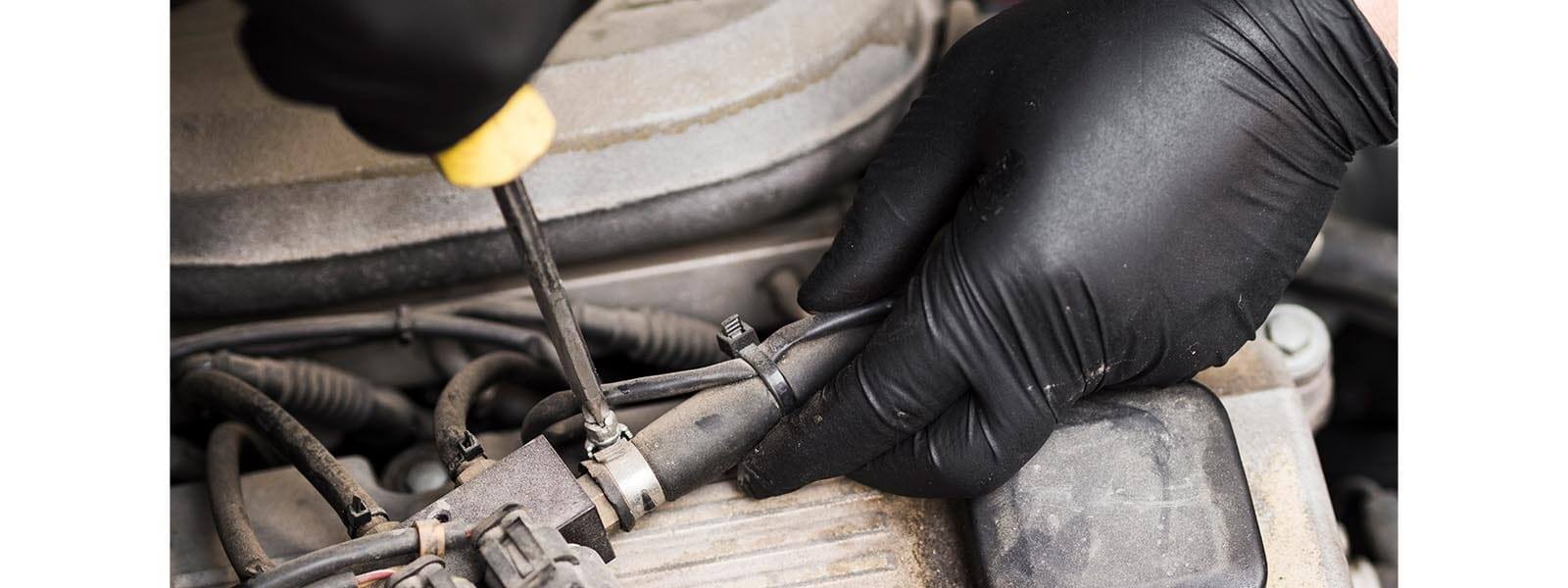
Why Do Mechanics Wear Nitrile Gloves?
If you've ever visited an auto repair shop or watched a mechanic at work, you've probably noticed something consistent – they wear nitrile gloves. These mechanics' gloves have become a standard piece of equipment in the automotive industry. But why do mechanics wear nitrile gloves, and what benefits do these gloves offer? Let’s explore the reasons behind this common practice.
-
Protection from Chemicals and Solvents
One of the primary reasons mechanics prefer nitrile gloves is their exceptional resistance to chemicals and solvents. Mechanics often work with a variety of substances like engine oil, transmission fluid, brake fluid, and gasoline. These chemicals can be harsh on the skin and pose potential health risks. Nitrile gloves act as a protective barrier, preventing direct contact between the skin and these chemicals. This not only helps keep mechanics safe but also minimizes the risk of skin irritation, burns, or allergic reactions caused by exposure to automotive fluids.
-
Preventing Oil and Grease Stains
Automotive repair work can get messy, especially when dealing with engines and transmissions. Oil, grease, and other lubricants are part and parcel of the job, and they have a knack for finding their way onto your hands. Nitrile gloves provide an effective shield against these stains, keeping mechanics' hands clean. This cleanliness isn't just about aesthetics; it's also important for maintaining a firm grip on tools and ensuring precision work. Dirty, oily hands can compromise safety and the quality of the repairs.
-
Maintaining Dexterity and Grip
Mechanical work often demands precision and a strong grip. Nitrile gloves are designed to fit snugly and provide excellent tactile sensitivity. Unlike some bulkier gloves, they allow mechanics to feel the parts they're working on and manipulate small components effectively. Additionally, many nitrile gloves feature textured fingertips that enhance grip, even when handling oily or slippery surfaces. This helps mechanics maintain control over tools and reduces the risk of accidents.
-
Avoiding Contamination
Mechanics may work on various vehicles throughout the day, and each vehicle comes with its own set of contaminants, such as dirt, dust, or germs. Nitrile gloves act as a barrier that prevents the transfer of these contaminants from one vehicle to another. This is especially crucial in automotive repair shops that handle both routine maintenance and more complex repairs, as cross-contamination could lead to safety issues or damage to a customer's vehicle.
-
Latex Allergy Concerns
Some individuals are allergic to latex, which is found in natural rubber gloves. To ensure the safety and comfort of all mechanics, many automotive repair shops opt for nitrile gloves, which are latex-free. This choice reduces the risk of allergic reactions among staff and ensures that everyone can work safely without concerns about skin irritation or allergies.
Why Nitrile Mechanic Gloves Are Important
Nitrile gloves have become an essential part of a mechanic's toolkit for good reason. They offer protection from harmful chemicals, prevent stains, maintain dexterity, enhance grip, and minimize contamination risks. Additionally, the latex-free nature of nitrile gloves makes them a safe choice for individuals with latex allergies. So, the next time you see a mechanic donning nitrile gloves while working on a car, you'll know it's not just a fashion statement but a practical and safety-conscious choice that benefits both the mechanic and the quality of the automotive repair work.

Leave a comment